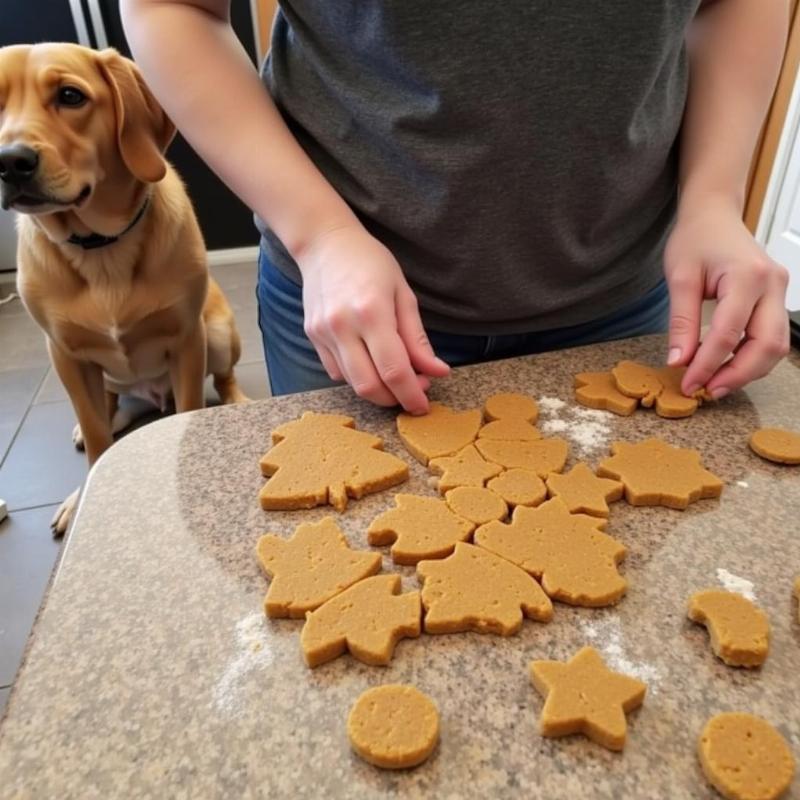Losing weight for your furry friend can be a challenge, but finding the right dog treats can make a big difference. Choosing the best dog treats for weight loss isn’t just about picking low-calorie options; it’s also about ensuring they provide the necessary nutrients without compromising your dog’s health. Let’s explore some delicious and healthy treat options that can help your dog shed those extra pounds while staying happy and satisfied.
Choosing the best dog treats for weight loss involves considering several factors, including calorie content, ingredients, and your dog’s individual needs. Many commercially available treats are loaded with unhealthy fillers and additives, so opting for natural, wholesome options is crucial. Remember to always consult your veterinarian before making significant changes to your dog’s diet, especially if they have underlying health conditions. Let’s dive deeper into what makes a great weight loss treat for your canine companion.
Understanding Your Dog’s Needs for Weight Loss
Every dog is different, and their weight loss journey will be unique. Factors like breed, age, activity level, and underlying health conditions play a crucial role in determining the right approach. For example, a small, senior dog will have different caloric needs than a large, active breed. Before you start any weight loss program, consult with your veterinarian. They can assess your dog’s overall health, recommend a target weight, and suggest suitable treat options.
Selecting the Right Low-Calorie Dog Treats
When browsing the pet store aisle, look for treats that are specifically formulated for weight management. These treats are typically lower in calories and fat, and higher in fiber to promote satiety. Check the ingredient list and choose treats with whole foods like fruits and vegetables. Avoid treats with artificial flavors, colors, and preservatives. Single-ingredient treats like freeze-dried fruits and vegetables are a great option.
Reading Dog Treat Labels for Weight Loss
Don’t be fooled by marketing claims. Always read the nutritional information and ingredient list carefully. Look for treats with high fiber content, as this helps your dog feel full and satisfied, preventing overeating. Avoid treats with added sugars and excessive fat. Opt for treats with natural, recognizable ingredients. If you’re unsure about a particular ingredient, consult with your veterinarian.
Healthy Homemade Dog Treats for Weight Loss
Making your own dog treats can be a fun and rewarding way to ensure your dog is getting healthy, low-calorie snacks. Simple recipes using ingredients like pumpkin, carrots, and lean meats are easy to make and offer a nutritious alternative to commercial treats. Remember to avoid using toxic ingredients like onions, garlic, and grapes.
 Homemade Dog Treats for Weight Loss
Homemade Dog Treats for Weight Loss
Easy Homemade Dog Treat Recipes
- Pumpkin and Carrot Bites: Combine pureed pumpkin, grated carrots, and a small amount of whole wheat flour. Bake until firm.
- Apple and Cinnamon Chips: Thinly slice apples and sprinkle with cinnamon. Bake at a low temperature until crispy.
- Chicken Jerky: Thinly slice chicken breast and dehydrate until dry and chewy.
Incorporating Treats into a Weight Loss Plan
Remember, treats should only make up a small portion (around 10%) of your dog’s daily caloric intake. Even healthy treats can contribute to weight gain if given in excess. Use treats strategically for training, positive reinforcement, and occasional pampering. ballpark all beef hot dogs nutrition
Monitoring Your Dog’s Progress
Regularly weigh your dog and adjust their food and treat intake accordingly. Keep a food diary to track their daily calorie consumption. If you notice your dog isn’t losing weight as expected, consult with your veterinarian to rule out any underlying medical conditions. best dog food for hypothyroidism
Conclusion
Finding the best dog treats for weight loss requires careful consideration of your dog’s individual needs and a thorough understanding of ingredients. By choosing healthy, low-calorie treats and incorporating them into a balanced diet and exercise plan, you can help your furry friend achieve a healthy weight and enjoy a long, happy life. Remember to consult your veterinarian for personalized advice and to monitor your dog’s progress throughout their weight loss journey. hemp vs cbd for dogs
FAQ
- What are some good low-calorie dog treats for training? Small pieces of cooked chicken breast, carrots, green beans, or air-dried sweet potato chews are great low-calorie training treats.
- Can I give my dog fruits and vegetables as treats? Yes, many fruits and vegetables are safe and healthy for dogs. However, avoid grapes, raisins, onions, and garlic, as these are toxic to dogs.
- How many treats should I give my dog per day? Treats should not exceed 10% of your dog’s daily caloric intake.
- Are homemade dog treats better than store-bought treats? Homemade treats can be a healthier option if you use wholesome ingredients and avoid harmful additives.
- What should I do if my dog isn’t losing weight despite eating low-calorie treats? Consult your veterinarian to rule out any underlying medical conditions and adjust your dog’s weight loss plan accordingly. benefits of bacon grease for dogs
- Can I use human food as dog treats for weight loss? Some human foods, like plain cooked chicken or certain fruits and vegetables, can be used as treats, but always check for safety and avoid toxic ingredients.
- What are the signs that my dog is overweight? Difficulty breathing, reduced activity levels, difficulty standing or walking, and a visible layer of fat over the ribs are signs of obesity in dogs. is fish food harmful to dogs
Beautdogs.us is your premier online resource for all things dog-related in the USA. We provide expert advice on dog breeds, care, nutrition, and product recommendations. Whether you’re a new dog owner or a seasoned pro, Beautdogs.us is your trusted source for comprehensive and engaging information. Contact us for personalized guidance: Email: [email protected], Phone: +1 501-555-7529.